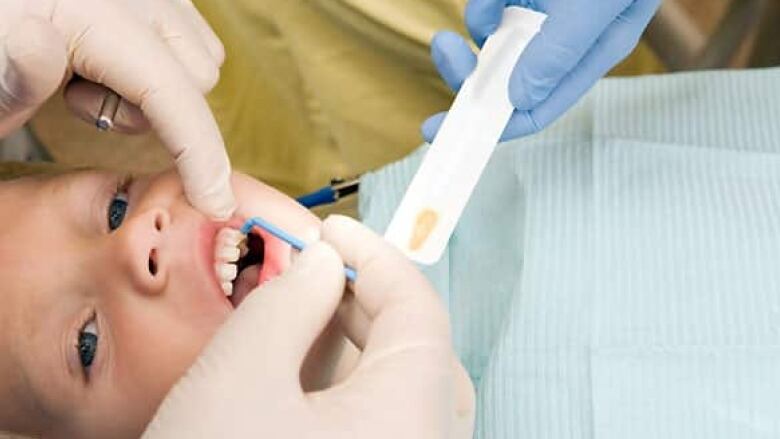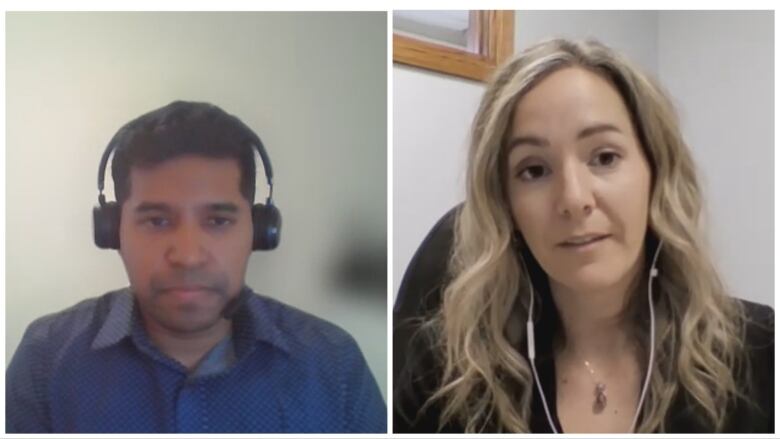Data shows Windsor-Essex kids are getting more severe cavities and it's getting worse
Percentage of kids with urgent dental needs has doubled in last 10 years

The dental health of childrenin the region has progressively gotten worse over the last 10 years,according to data from the Windsor-Essex County Health Unit (WECHU).
The local health unit's data dashboardshows that between 2012 and 2022, the percentage of kids with tooth decay and/or urgent dental needs has doubled, and all other dental health indicators have been "worsening." It's also important to note that over the years, the health unit has screened fewer and fewer students, which could skew the data.
Dental health has been a longstanding concern in Windsor-Essex, which just hadfluoride pumped back into the water early last year after nearly nineyears without it.
Fluoride is a mineral that preventstooth decay, but it can increase the risk of an enamel discolouration known asfluorosisif children consume more than recommended.
"It's more severe decay than what we see, so it's progressing rapidly, which means that often students will need to see specialists because of how severe it is," said Jennifer Bradt, the health unit's oral health manager.
The dental health statistics collected by WECHUare from their schoolscreening program, which assesses all junior and senior kindergarten students, along with somein Grade 2.
Data from 2020-2021is missing as the pandemic pausedthe in-school screening program.
Bradt said they expected to see more tooth decay when the program started up again inApril 2022.
She said her staff have noticed more cavities. They've also noticed cavitiesthat are more "severe and deeper" in both baby and adult teeth.
Tooth decay like this often leads to infection, Bradt said.
Bradt said the pandemic likely played a role in decay in recent years as many childrenmight have stopped going to the dentist or didn't have access. But it's also clear that dental health was decliningbefore2020.
Bradt said one factor is not having fluoride since 2013. The health unit's data shows that since 2012, the percentage of children eligible for a topical fluoride significantly increased from 26.50 per cent to 60.10 per cent.
However, the number of children being screened has decreased over the years.
In 2012, the health unit data shows that 20,336 childrenwere screened. During the 2021-2022 school year, that number was 5,570 students.
Bradt said the data is likely still a good indicator of dental health across the city.
WECHU's manager of epidemiology and evaluations,Ramsey D'Souza,said the children they're seeinghavemore teeth that are either decayed, missing or filled.

An example: on average, each junior kindergartenstudentlast year had almost two teeth that either had a cavity, were missing or had been filled. Tenyears ago, D'Souza said, it was less thanone tooth.
"So that just means that we're seeing more kids have work done to address their oral health for various reasons."
While WECHU doesn't track oral screening scores of teens or older adults, D'Souza said they see those who come to the hospital for more urgent tooth care.
"What we're seeing is that over time, if oral health doesn't get addressed, you could have challenges. Those challenges are specifically for those 15 and 44 years of age ... and that's a concern."
Root causes
D'Souzasaid they'restill looking to better track some of the root causesso they can improve the health of residents.
Bradt suggested it's a combination of barriers. These includethecost of dentist visits, language, finding a dentist and understanding what it means to have good dental health.
"Oral health is extremely important in children because it really connects to their overall health and recognizing that getting an early start with oral health will effect them for the rest of their lives," Bradt said, adding that fixing cavities in baby teeth is really important.
The health unit said that in children with significant decay or dental issues, it will contact families and try to help connect the child with care.
Bradt said they're expanding thescreening program to include more grades and high-risk schools. They're also assessing all of the students so they can identify children in need of treatment.












_(720p).jpg)


 OFFICIAL HD MUSIC VIDEO.jpg)
.jpg)



























































































